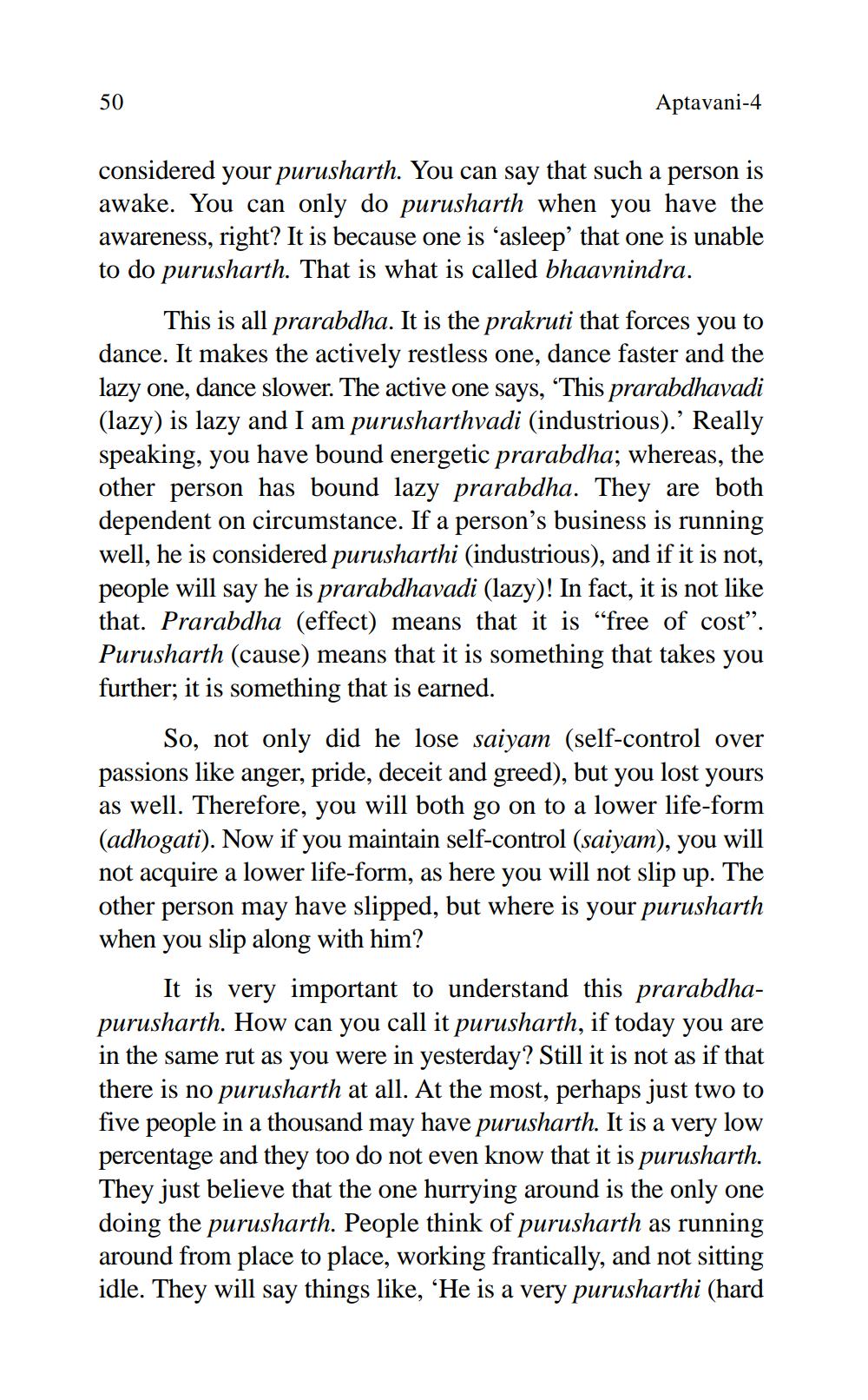________________
50
Aptavani-4
considered your purusharth. You can say that such a person is awake. You can only do purusharth when you have the awareness, right? It is because one is 'asleep' that one is unable to do purusharth. That is what is called bhaavnindra.
This is all prarabdha. It is the prakruti that forces you to dance. It makes the actively restless one, dance faster and the lazy one, dance slower. The active one says, "This prarabdhavadi (lazy) is lazy and I am purusharthvadi (industrious).' Really speaking, you have bound energetic prarabdha; whereas, the other person has bound lazy prarabdha. They are both dependent on circumstance. If a person's business is running well, he is considered purusharthi (industrious), and if it is not, people will say he is prarabdhavadi (lazy)! In fact, it is not like that. Prarabdha (effect) means that it is "free of cost". Purusharth (cause) means that it is something that takes you further; it is something that is earned.
So, not only did he lose saiyam (self-control over passions like anger, pride, deceit and greed), but you lost yours as well. Therefore, you will both go on to a lower life-form (adhogati). Now if you maintain self-control (saiyam), you will not acquire a lower life-form, as here you will not slip up. The other person may have slipped, but where is your purusharth when you slip along with him?
It is very important to understand this prarabdhapurusharth. How can you call it purusharth, if today you are in the same rut as you were in yesterday? Still it is not as if that there is no purusharth at all. At the most, perhaps just two to five people in a thousand may have purusharth. It is a very low percentage and they too do not even know that it is purusharth. They just believe that the one hurrying around is the only one doing the purusharth. People think of purusharth as running around from place to place, working frantically, and not sitting idle. They will say things like, 'He is a very purusharthi (hard




